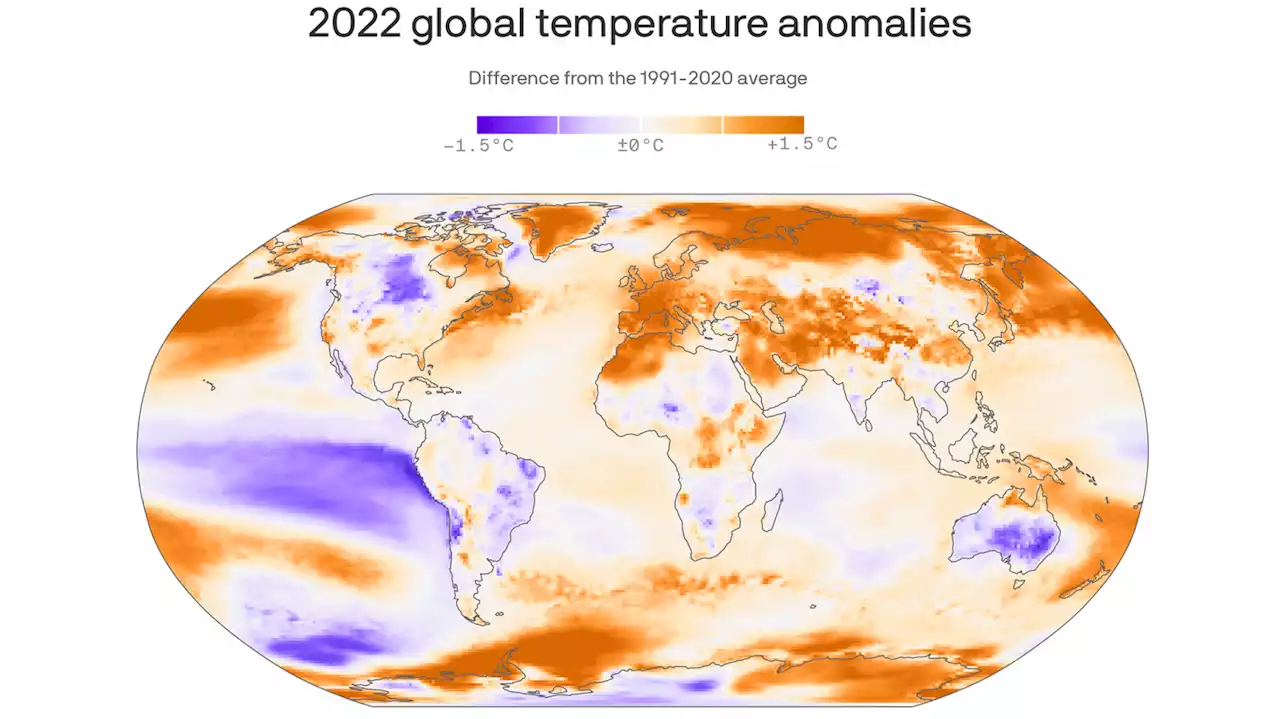The oil giant's internal climate models correctly forecast the climate change we're seeing now—all while the company pushed denial in public.
into how the company’s external PR didn’t match its internal research. “Exxon Knew,” which refers to the idea that Exxon knew about climate change and its dangers
“We knew Exxon knew, but this is like Exxon knew 2.0,” said Geoffrey Supran, the study’s lead author and Twitter began overlaying graphs included in the archives with actual warming projections, noting how accurate the Exxon predictions appeared to be.All you need to do is sign up with your email and boom: credit for your preorder on a new Samsung device.all of the scrutiny of Exxon’s climate rhetoric by us and others, the company’s actual climate projections, their actual data, the graphs had never actually been assessed,” Supran said.
United States Latest News, United States Headlines
Similar News:You can also read news stories similar to this one that we have collected from other news sources.
 2022 was the world's fifth-warmest year on recordThe past eight years were the eight warmest years on record, and 2022 was the fifth-warmest on record globally, a new report finds.
2022 was the world's fifth-warmest year on recordThe past eight years were the eight warmest years on record, and 2022 was the fifth-warmest on record globally, a new report finds.
Read more »
 Exxon accurately predicted global warming from 1970s -- but continued to cast doubt on climate science, new report finds | CNN BusinessExxonMobil's own scientists accurately predicted future global warming in reports dating back to the late 1970s and early 1980s, but the company continued to cast doubt on climate science, a new report finds.
Exxon accurately predicted global warming from 1970s -- but continued to cast doubt on climate science, new report finds | CNN BusinessExxonMobil's own scientists accurately predicted future global warming in reports dating back to the late 1970s and early 1980s, but the company continued to cast doubt on climate science, a new report finds.
Read more »
 Cereal species mixtures: an ancient practice with potential for climate resilience. A review - Agronomy for Sustainable DevelopmentFood security depends on the ability of staple crops to tolerate new abiotic and biotic pressures. Wheat, barley, and other small grains face substantial yield losses under all climate change scenarios. Intra-plot diversification is an important strategy for smallholder farmers to mitigate losses due to variable environmental conditions. While this commonly involves sowing polycultures of distinct species from different botanical families in the same field or multiple varieties of the same species (varietal mixtures), mixed plantings of multiple species from the same family are less well known. However, the sowing of maslins, or cereal species mixtures, was formerly widespread in Eurasia and Northern Africa and continues to be employed by smallholder farmers in the Caucasus, Greek Islands, and the Horn of Africa, where they may represent a risk management strategy for climate variability. Here, we review ethnohistorical, agronomic, and ecological literature on maslins with a focus on climate change adaptation, including two case studies from Ethiopian smallholder farmers. The major points are the following: (1) farmers in Ethiopia, Eritrea, and Georgia report that mixtures are a strategy for ensuring some yield under unpredictable precipitation and on marginal soils; (2) experimental trials support these observations, demonstrating increased yield advantage and stability under certain conditions, making maslins a potentially adaptive practice when crops are impacted by new biotic and abiotic conditions due to climate change; (3) maslins may balance trade-offs between interfamilial species plantings and varietal mixtures, and expand the total portfolio of traits available for formulating mixtures from varietal mixtures alone; and (4) they may buffer against the impacts of climate trends through passive shifts in species composition in response to environmental pressures. We demonstrate the potential benefits of maslins as an agroecological intensification and climate
Cereal species mixtures: an ancient practice with potential for climate resilience. A review - Agronomy for Sustainable DevelopmentFood security depends on the ability of staple crops to tolerate new abiotic and biotic pressures. Wheat, barley, and other small grains face substantial yield losses under all climate change scenarios. Intra-plot diversification is an important strategy for smallholder farmers to mitigate losses due to variable environmental conditions. While this commonly involves sowing polycultures of distinct species from different botanical families in the same field or multiple varieties of the same species (varietal mixtures), mixed plantings of multiple species from the same family are less well known. However, the sowing of maslins, or cereal species mixtures, was formerly widespread in Eurasia and Northern Africa and continues to be employed by smallholder farmers in the Caucasus, Greek Islands, and the Horn of Africa, where they may represent a risk management strategy for climate variability. Here, we review ethnohistorical, agronomic, and ecological literature on maslins with a focus on climate change adaptation, including two case studies from Ethiopian smallholder farmers. The major points are the following: (1) farmers in Ethiopia, Eritrea, and Georgia report that mixtures are a strategy for ensuring some yield under unpredictable precipitation and on marginal soils; (2) experimental trials support these observations, demonstrating increased yield advantage and stability under certain conditions, making maslins a potentially adaptive practice when crops are impacted by new biotic and abiotic conditions due to climate change; (3) maslins may balance trade-offs between interfamilial species plantings and varietal mixtures, and expand the total portfolio of traits available for formulating mixtures from varietal mixtures alone; and (4) they may buffer against the impacts of climate trends through passive shifts in species composition in response to environmental pressures. We demonstrate the potential benefits of maslins as an agroecological intensification and climate
Read more »
 2022 was the 5th warmest year on record, adding further evidence of climate changeThe Earth experienced its fifth warmest year in recorded history in 2022, adding to a streak in which the last eight years have each been the eight hottest on record thanks to climate change caused by the burning of fossil fuels.
2022 was the 5th warmest year on record, adding further evidence of climate changeThe Earth experienced its fifth warmest year in recorded history in 2022, adding to a streak in which the last eight years have each been the eight hottest on record thanks to climate change caused by the burning of fossil fuels.
Read more »
 This is the climate change 'scam' that's making agenda-pushers 'loaded': Jimmy Failla'Fox Across America' host Jimmy Failla discusses the climate crowd's agenda and argues that the environmental-friendly efforts are not being done with the 'greater good in mind.'
This is the climate change 'scam' that's making agenda-pushers 'loaded': Jimmy Failla'Fox Across America' host Jimmy Failla discusses the climate crowd's agenda and argues that the environmental-friendly efforts are not being done with the 'greater good in mind.'
Read more »
 Extreme weather, fueled by climate change, cost the U.S. $165 billion in 2022Americans endured 18 different billion-dollar disasters linked to climate change in 2022 — totaling $165 billion in damage, a new report finds.
Extreme weather, fueled by climate change, cost the U.S. $165 billion in 2022Americans endured 18 different billion-dollar disasters linked to climate change in 2022 — totaling $165 billion in damage, a new report finds.
Read more »
